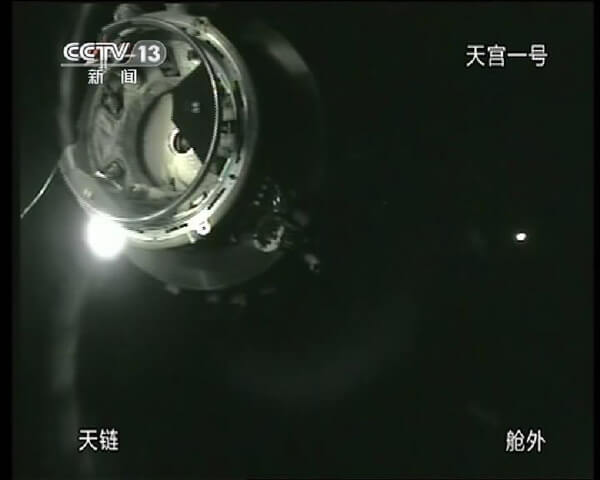During the Cold War, the United States found ways to cooperate with the Soviet Union on space missions. Should it do the same with China?

The next time humans set foot on the moon, they might as well plant a red flag with five yellow stars on it. The Chinese space program is developing rapidly, and further development is expected during 2012, when taikonauts, as Chinese astronauts are commonly called, will visit the Tiangong-1 space unit.
The US President's Chief Science Advisor, John Holden, said that the US would benefit from cooperation with China. The two countries can deal together with the problem of space debris and perhaps also lay the foundation for a joint mission to Mars. His opinion is in line with the Obama administration's policy known as the "Asian axis", which advocates shifting the focus of US interest from the Middle East to China, whose influence in the world is increasing. The idea is that scientific and technological cooperation could be used as a useful leverage in negotiations.
However, federal legislation prohibits the American space agency, NASA, from holding such joint programs. The relevant section of the law appeared for the first time in April 2011 when establishing a temporary budget for the agency, and appeared again in November 2011 during the enactment of the NASA budget for 2012. The author of this legal restriction is Congressman Frank Wolf from Virginia, who justified it in the human rights situation in China and fear of espionage. The "Wolf Clause" already has an impact on the ground: last year, journalists from the state-owned Chinese news agency Xinhua were banned from watching the latest launch of the space shuttle.
An issue that worries many is, who exactly will be the Chinese representative in that hypothetical joint space mission with the USA. It is clear that the Chinese "People's Liberation Army" plays a central role in the Chinese space program, says Dean Cheng, a research fellow at the Heritage Foundation in Washington. "This raises the question of whether there is even a civilian space program in the true sense of the word," he says.
Many believe that limited cooperation, such as in unmanned flights, would be beneficial. "We found ways to cooperate with the Soviet Union during the Cold War," says Scott Pace, director of the Space Policy Institute at George Washington University. "I don't see why we can't do similar things with China."

3 תגובות
A strange glitch, I admit. The article about the condors by Scientific American is also waiting for its turn.
And perhaps a national secret of NASA was discovered here that the next flights they will make on top of condors and they are worried that the Chinese will come up with the Ghanaian idea and copy them.
Only at the end do they have a serious problem, the lead problem, but everyone knows it's because of the Israeli left
Only my father forgot to direct us to the source of the article, which is Channel 99
But what a wonderful day
I hope the article is understandable
Let the Animals Live
Sabdarmish Yehuda
There is confusion here. Mixing between 2 different articles.